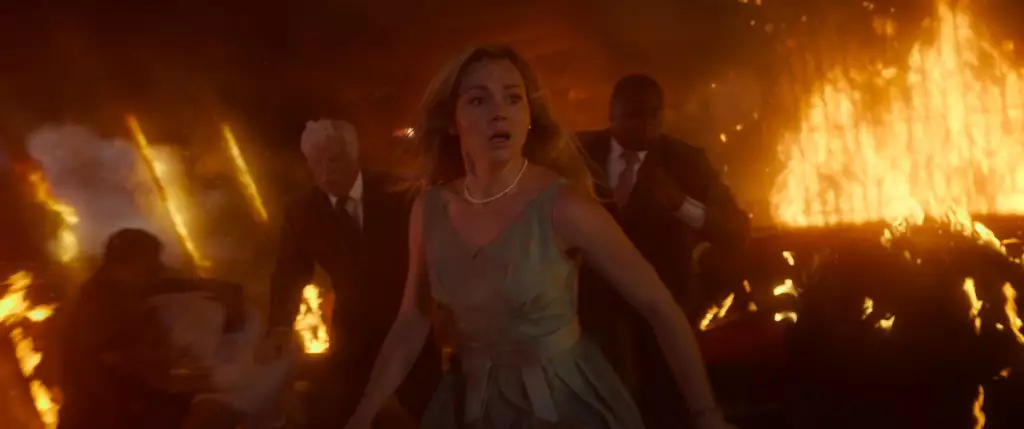After a fourteen-year hiatus, the “Final Destination” franchise is set to make an explosive comeback with “Final Destination: Bloodlines.” This cinematic resurrection serves as a testament to both the resiliency of the horror genre and the audience’s insatiable appetite for a thrilling brush with death. As Richard Brener, New Line’s President, cheekily hinted, “See you at the Oscars,” it is evident that the expectations are sky-high, teetering between absurdity and earnestness. Yet, the question lingers: can this new installment truly reclaim the magic that made its predecessors staples in the horror movie lexicon?
The franchise has amassed over $660 million worldwide across five films, oscillating between horror and dark humor. There is something unnervingly entertaining about its exploration of fatalism, where every character is haunted by a preordained fate that they foolishly hope to escape. This mixture of existential dread and morbid curiosity is perhaps what makes “Bloodlines” particularly captivating. An impressive trailer, which has already amassed nearly 179 million views globally, demonstrates that the film’s draw transcends mere cinematic nostalgia; it taps into a collective fascination with mortality.
The Central Conflict: Humanity vs. Death
At its heart, “Final Destination: Bloodlines” wraps itself around a classic narrative of man versus fate, embodied in the peculiar story of two brothers entangled in a dangerous scheme to outwit death itself. It is as if they are desperately grasping at straws, a distillation of the human experience where we constantly attempt to control aspects of our lives that are inherently uncontrollable. Bobby Campbell’s peanut butter cup escapade not only serves as a comedic interlude but also reveals deeper philosophical undercurrents—what sacrifices are we willing to make to avert our doom?
The darker aspects of this comedic goal reveal unsettling truths about bravery in the face of inevitable death. Bobby’s reluctance to succumb to what he perceives as “unsalted bitches” transforms into an intentional crossroad; the risk is inviting, yet fraught with the looming shadow of consequence. This exploration of reckless decision-making feels relevant in today’s society, where individuals often gamble their well-being for momentary gratification.
Contextualizing Horror in Today’s Society
While horror typically indulges in a fantastical world of monsters and gore, “Bloodlines” aims to challenge audiences to confront real-world phobias—the fear of losing control, the inevitability of death, and the futility of trying to cheat one’s fate. In a world rife with uncertainties and existential dread, the film’s approach becomes a cathartic experience. The psychological underpinnings of the film resonate more potent than cheap scares; they unpack profound anxieties embedded in contemporary society.
One might argue that this exploration of fear is a culture that thrives on a diet of horror. How often do we face peril in our lives, whether in the form of environmental disasters or societal collapse? In that sense, “Final Destination: Bloodlines” emerges as a reflection of our collective psyche. While the filmmakers craft their rollercoaster of ominous humor and gruesome permutations, they also invite us to interrogate our relationship with death, not just as a fear but as an inevitable companion of life.
In the tapestry of modern horror, “Final Destination: Bloodlines” promises to be a compelling thread—one that both provocatively entertains and artfully critiques the human condition in its dance with fate.


Leave a Reply